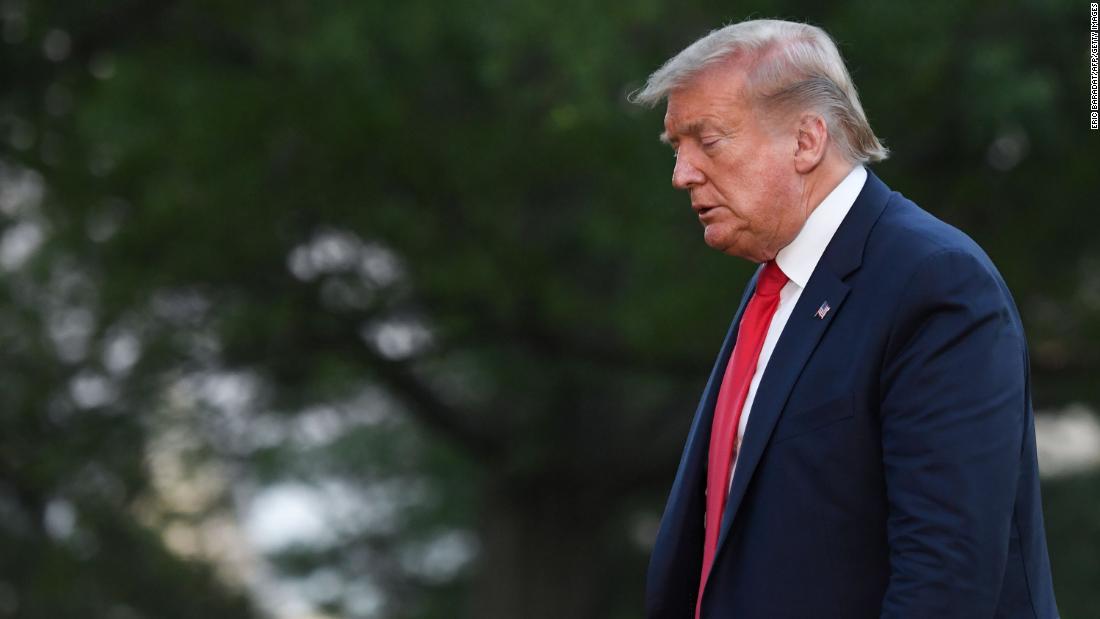[ad_1]
Consider some of the signature events that helped define chief executives over the last century. They etch an unflattering contrast with today’s incumbent.
Harry Truman demonstrated presidential accountability by avowing “The buck stops here.” Trump dodges the buck, insisting in the White House Rose Garden that, “I don’t take responsibility at all” for coronavirus failures.
Dwight Eisenhower used the extraordinary powers of his office for paramount national purposes by sending federal troops to protect black students integrating Arkansas schools. Trump sent federal officers to forcibly disperse Americans peacefully protesting the police killing of an unarmed black man.
John F. Kennedy summoned the nation to shared purposes: “Ask not what your country can do for you, ask what you can do for your country.” When the Bay of Pigs invasion of Cuba on his watch turned into a fiasco, Kennedy accepted personal responsibility.
‘I alone can fix it’
Trump makes self-aggrandizement his constant theme, telling Americans “I alone can fix it” and publicly thanking himself for positive developments. Unerringly, he responds to setbacks on coronavirus, civil unrest and anything else by blaming others.
Lyndon Johnson advanced the American ideal of equality with civil rights legislation, even as he predicted accurately that it would undercut his political party in the South. The white voters repelled by that decision helped Republicans dominate presidential elections for a generation.
Now that a transformed national electorate prefers Democrats, Trump joins fellow Republicans in opposing efforts to ease voting during the pandemic threat. He acknowledges that higher voting levels hurt Republicans.
Ronald Reagan inspirited a beleaguered nation with the vision of America as a “shining city on a hill.” His first inaugural placed “idealism and fair play” at the core of the country’s strength.
Trump defended the Russian autocrat whose intelligence services aided his campaign by deriding America itself, telling an interviewer, “You think our country’s so innocent?” His inaugural accused predecessors of inflicting “carnage” on constituents for their personal gain.
George W. Bush sought to shield Muslim Americans from bigotry by visiting a mosque after al Qaeda’s 9/11 attacks. Trump places racial division at the heart of his political strategy, using the pandemic as a pretext to restrict visas for new entrants and expel asylum-seekers.
Richard Nixon, who as a result of Watergate crimes, became the only president ever to resign, styled himself a “law and order” commander-in-chief, defending America’s “silent majority.” Trump invokes those slogans as he emulates Nixon’s polarizing tactics.
But even Nixon, however awkwardly, once left the White House in the middle of the night to talk with anti-war protesters at the Lincoln Memorial, no cameras present. Last week, troops were sent to block the memorial’s steps.
Leadership void
Without naming him, Trump’s predecessors in both parties have sought to fill the leadership void they see by speaking out. George W. Bush answered Trump’s blasts against Democrats on coronavirus this spring by asserting “we rise or fall together.”
After Monday’s violent crackdown on protesters outside the White House, Bush declared that “those who set out to silence those voices do not understand the meaning of America.” Separately, Obama offered a reminder that “this country was founded on protest — it’s called the American Revolution.”
Trump responds to such criticism with personal attacks. But the president’s sagging poll numbers show most Americans judge his leadership harshly.
“I think we should look at people who are running for office and put them through the filter,” Kelly said on Friday. “What is their character like?”
More than three years as president have made the holes in Trump’s character unmistakable. They render other flaws, such as his ignorance of history and public policy, trivial by comparison.
“A president doesn’t have to be brilliant,” Noonan wrote 25 years ago. “He doesn’t have to be clever. You can hire clever.
“But you can’t buy courage and decency, and you can’t rent a strong moral sense. A president must bring those things with him.”
[ad_2]
Source link



